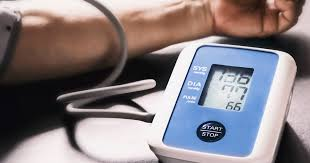
Menopause is more than just a biological shift for women. It’s a major life event that can touch every part of their lives, including relationships. Often, men might not fully grasp what’s happening, leading to confusion or distance. Understanding this period is the first step toward stronger bonds.
Many people think of menopause only as hot flashes. Yet, the range of changes can be much wider. Women might face big emotional, mental, and physical shifts. These are very real and can be tough for the woman going through them. Ignoring them won’t make them disappear.
If you are a partner, son, or father, your role matters greatly here. You can help your loved one navigate this time with grace and ease. This is a chance to deepen your connection through knowledge and true empathy. Learn how to be her rock during this important transition.
Understanding the “Change”: What Menopause Really Is
What is Menopause?
Menopause signals the end of a woman’s menstrual cycles. It’s officially diagnosed after 12 straight months without a period. This usually happens around the late 40s to early 50s. It marks a clear shift in her reproductive life.
During this time, her body’s hormone levels change a lot. Estrogen and progesterone, two main female hormones, begin to drop. This decline affects many bodily functions. Everything from bone health to mood can feel the impact.
It’s good to know the difference between perimenopause and menopause. Perimenopause is the phase leading up to menopause. It can start years before a woman’s final period, often in her 40s. Symptoms can be quite strong during this transition time.
Symptoms Beyond the Obvious
Menopause brings many different symptoms. Some are well-known, others less so. Knowing them helps you offer the right kind of support.
Physical Manifestations
Hot flashes are sudden feelings of intense heat. They can make her face and neck red, and she might sweat a lot. Night sweats are the same, but they happen while she sleeps. Both can be very disruptive, making her uncomfortable and tired.
Sleep disturbances are also common. She might struggle with insomnia, finding it hard to fall asleep or stay asleep. Her sleep might feel broken or light. Poor sleep impacts her energy and mood the next day.
Vaginal dryness is a less talked-about symptom. It can cause discomfort and make sex painful. Urinary changes, like more frequent urges, can also occur. These issues can greatly affect comfort and intimacy.
You might also notice changes in her energy levels. She might feel tired more often, even after rest. Metabolism shifts can lead to weight gain, especially around her belly. This can be frustrating for her.
Emotional and Mental Impact
Hormone changes can lead to mood swings. One moment she might feel fine, the next she’s irritable or sad. These shifts are not her fault and can be hard for her to control. Patience on your part is key.
Anxiety and depression can also surface or worsen during menopause. The body’s chemical changes can make her more prone to these feelings. She might seem more worried or withdrawn than usual. This is a real struggle for many women.
Many women also report “brain fog.” This can mean trouble focusing or remembering things. Simple tasks might feel harder. These cognitive changes can cause frustration and worry about her mental sharpness.
The Ripple Effect: How Menopause Impacts Relationships
Menopause does not just affect the woman; it often ripples out to those around her. Family members often feel the effects. Understanding these impacts helps everyone adjust.
Partner Dynamics
Intimacy can change during menopause. Vaginal dryness might make sex uncomfortable. Her desire for sex might also change due to hormones or body image worries. Open talks about sex and intimacy are very important here.
Emotional connection might feel strained at times. Mood swings, tiredness, and anxiety can make her seem distant or easily upset. It takes extra understanding and patience from her partner. Reassure her that you are there for her, no matter what.
Changes in her energy or mood might mean household chores need rethinking. She might not have the same stamina for certain tasks. Be ready to adjust shared duties or take on more when she feels drained. This flexibility shows true support.
Family Dynamics
Menopause also affects the wider family. Sons, in particular, might notice changes in their mother. Fathers also play a special role, both as partners and as adult children to their own mothers.
Impact on Sons
Sons might feel confused by their mom’s mood swings or fatigue. They might not understand why she seems different. They might take her reactions personally, which can cause friction. Help them see it’s about her health, not them.
Sons can offer great support by being understanding. They can learn not to take her mood personally. Simple acts like helping with chores or just listening can show great empathy. This helps her feel less alone in her journey.
Impact on Fathers
Fathers, as partners, are vital support systems. They can learn to navigate their wife’s menopause with grace. Being informed helps them respond with patience and love. Their steady presence means a lot.
Fathers might also find themselves supporting their own mothers or adult daughters. Seeing them go through similar changes can bring deeper understanding. This creates a circle of intergenerational support. They can share their own experiences or observations.
How Men Can Provide Effective Support
Being a good support system means being active and engaged. It goes beyond just knowing about menopause. It means taking real steps to help.
Open Communication and Active Listening
Start talks about menopause openly and gently. Pick a calm time to ask how she’s feeling. Make sure she knows you want to understand and help. This creates a safe place for her to share.
Listen without judgment when she talks about her symptoms. Let her know you believe her experience is real and valid. Don’t try to “fix” it right away. Just listen and acknowledge her feelings.
Ask questions that show you care. Try asking, “What can I do to make things easier today?” or “How are you feeling right now?” Focus on understanding her needs. This helps you offer the right kind of help.
Practical Ways to Help
Helping with daily life can make a big difference. These actions show you are truly invested in her well-being.
Encouraging Healthy Lifestyle Choices
Encourage healthy eating habits together. Cook nutritious meals, or suggest a new recipe. Good food can help manage some symptoms and boost her overall health. Make it a shared goal to eat well.
Suggest exercise and movement as a shared activity. A walk together or a light workout can boost mood and energy. If she feels tired, encourage gentle movement instead. Support her efforts to stay active.
Practice stress management together. Try deep breathing, meditation, or quiet hobbies. Find ways to relax and unwind as a team. Reducing stress can ease some menopausal symptoms.
Household and Emotional Support
Offer to take on extra chores or duties. If she’s feeling tired or overwhelmed, step in. Helping with laundry, cooking, or errands can lighten her load. This simple act shows true care.
Patience is a virtue during this time. There will be tough moments and mood swings. Remain calm and understanding. Your steady, supportive presence can be a true comfort to her.
Start talking about future lifestyle adjustments together. This might include changes to diet, exercise, or even home environment. Planning ahead can make things feel less daunting. Face these changes as a team.
Encouraging Professional Help
Sometimes, symptoms need medical attention. Learn to spot when her symptoms are severe or impact her daily life too much. Encourage her to talk to a doctor about these issues.
Support her healthcare journey. Offer to go with her to doctor’s visits. Take notes during appointments and ask questions if she forgets. Be her advocate, making sure her concerns are heard.
Discuss treatment options with her and her doctor. This might include hormone therapy, lifestyle changes, or other medications. Understand the pros and cons of each choice. Help her make informed decisions for her health.
Expert Insights and Real-World Advice
Learning from experts and real experiences can give you a clearer picture. Their advice makes the journey smoother.
Expert Perspectives
“Menopause is a natural transition, not an illness,” says Dr. Jane Smith, a leading gynecologist. “Yet, its symptoms can greatly affect a woman’s quality of life. Open talk with a doctor is key to finding relief and managing this phase well.” Seeking help is a sign of strength.
Dr. Mark Johnson, a relationship therapist, shares, “Communication is the bedrock of any strong relationship, especially during life changes. Partners who listen actively and validate feelings will build deeper trust during menopause.” Empathy strengthens your bond.
A holistic wellness expert notes, “Small, daily changes in diet and activity can have a huge impact on menopausal symptoms. Eating whole foods and staying active are powerful tools for managing this time.” Focus on overall well-being.
Real-Life Experiences
John noticed his wife, Sarah, struggling with night sweats and irritability. “I started keeping the bedroom cooler and bought her breathable pajamas,” he says. “I also made sure I was home for dinner, giving her quiet time if she needed it. It’s about being observant and ready to help.” These small acts made a big difference.
Fifteen-year-old Alex saw his mom, Maria, often tired and teary. Instead of complaining about chores, he offered to walk the dog and do dishes. “I knew Mom wasn’t herself,” he shares. “Helping out felt like the least I could do. She really seemed to appreciate it.” His understanding helped his mom feel less alone.
Michael’s mother, Joan, was going through menopause while living alone. He made sure to call her often, asking about her energy and sleep. “I encouraged her to talk to her doctor and even went with her to an appointment,” he recalls. “It wasn’t just about my mom; it was about ensuring she got the care she deserved.”
Conclusion: Building a Stronger Future Together
Menopause is a unique chapter in a woman’s life. It calls for patience, understanding, and open hearts from the men around her. By learning about her journey, listening intently, and offering practical support, you can make a real difference.
Proactive support during this time builds stronger, more loving relationships. It helps the woman in your life feel seen and valued. This can lead to a smoother, more positive transition for everyone involved. Your thoughtful actions create lasting positive impacts.
Navigating menopause together is a journey that can deepen your connection. Embrace this time as a team. It’s an opportunity to show true partnership and grow closer than ever before. You are not just supporting her; you are building a more resilient future together.
Discover more from Healthinfo24.com
Subscribe to get the latest posts sent to your email.



Brianna2460
https://shorturl.fm/nNoWA